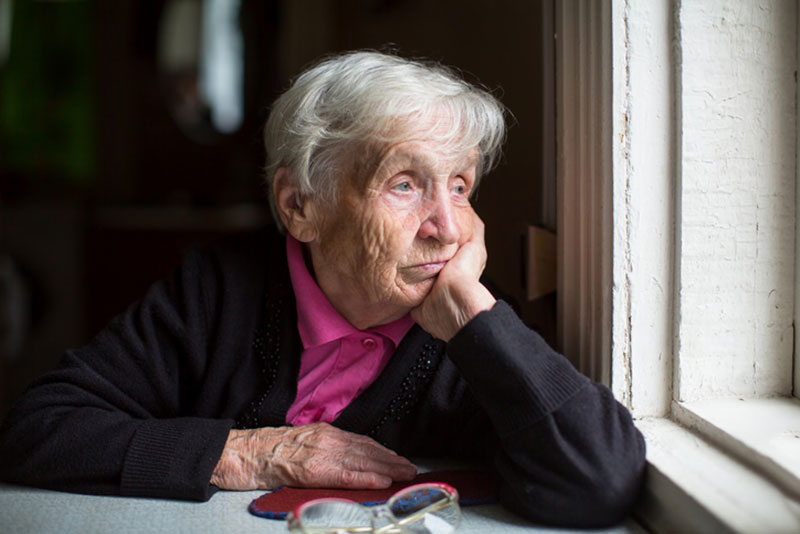
An inability to feel pleasure or enjoy once loved activities is something that many seniors struggle with.
Following the eventfulness of the holiday season, it’s not unusual for the winter doldrums to emerge. Yet what might appear at first to be a little bit of boredom could in reality be something more serious that needs to be addressed.
Anhedonia, is the inability to feel pleasure or enjoy once loved activities and a symptom of depression that is commonly missed in older loved ones. Anhedonia presents through symptoms such as:
- Negative feelings directed at either themselves or other people
- A decrease in emotional abilities
- A need to self-isolate and avoid social activities and interactions
It is always a good idea to talk with the physician if you notice any warning signs of depression in an older loved one. Effective treatment plans are readily available. In addition, there are actions family caregivers can take to help, too.
What Can You Do to Support an Older Loved One Having Difficulties With Anhedonia?
- Revise the diet. Foods that have serotonin can help improve a person’s mood and counteract depression. Add in more mood-boosting foods such as dark chocolate, spinach, yogurt, whole-grain bread, and fruit.
- Encourage exercise. Exercise is another way to boost mood through the release of feel-good hormones. Bring the grandkids over to play, head to the gym for a class or to swim, or simply take a stroll outdoors together.
- Improve sleep habits. Sleep deficiency and anhedonia can play off one another in a cycle of lack of motivation, anxiety, and fatigue. Establish and keep up with a consistent sleep schedule, have a light dinner and then power down the TV and electronics, and end the day with soothing activities such as reading a book, listening to music, or working on a puzzle.
- Get together with friends more often. This one could be challenging, as anhedonia impacts a person’s desire to be around others. Determine what types of social settings might feel less overwhelming to the person: signing up for a course, becoming a member of a group at their place of worship, regular lunch or coffee get-togethers with a good friend or neighbor, etc.
- Point out the positives. Reminiscing can be helpful for a loved one with anhedonia, allowing the senior to talk about fond memories. Browse photo albums, scrapbooks, or videos together and ask the senior to talk about funny experiences from the past. It can also help to keep a journal of any happy moments that occur each day, in spite of how insignificant they may seem. At the conclusion of every week, look back through the journal together to observe how many positives there actually are in our everyday lives.
It’s a good idea to recommend professional counseling, providing the opportunity for the person to consult with a therapist on a regular basis and to learn some coping tools to help. And, always try to be as supportive and empathetic as you can. This might be easier said than done with someone who seems to be unable to break out of depression, yet it’s vital that you let a senior loved one know you are there with them no matter what the mood.
How Can Home Care Help?
An in-home caregiver is a wonderful resource for an older adult struggling with an inability to feel pleasure in daily life. We are able to provide:
- Companionship for engaging activities, enhanced socialization, exercising, and conversations
- Transportation to fun outings or medical appointments
- Meal planning and preparation, using healthy, serotonin-rich ingredients
- And much more
Contact Grace Home Care, a trusted provider of home and memory care in Topeka, at 785-286-2273 to learn more about how in-home care services care can improve quality of life for someone you love.
